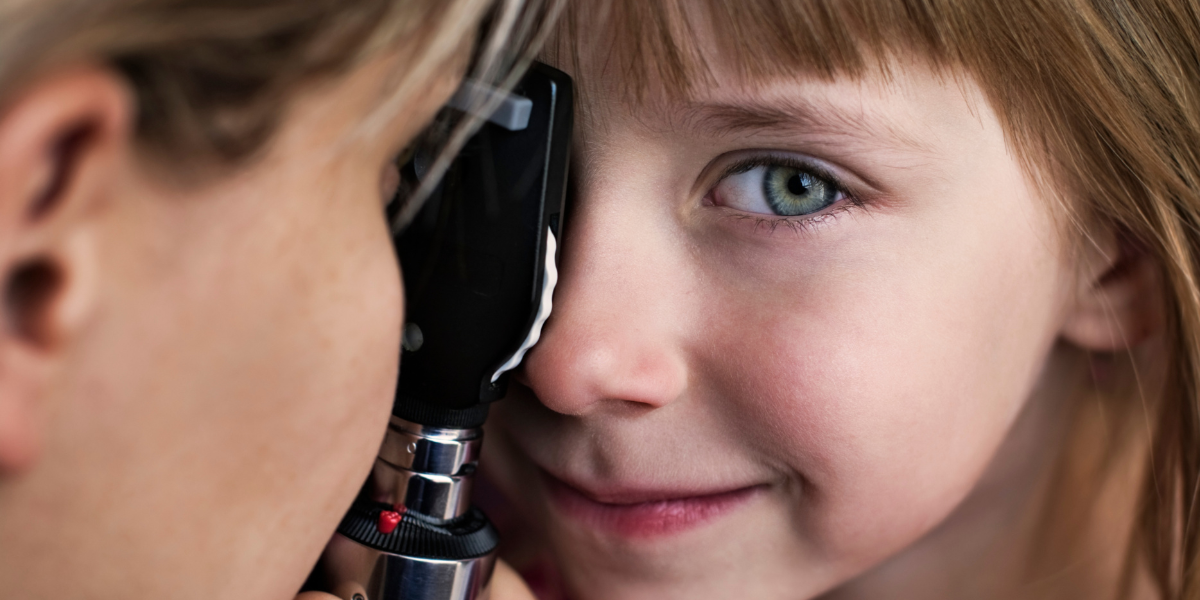If your child’s just been diagnosed with myopia (short-sightedness), you’re probably wondering: why didn’t anyone tell me this could happen? Why wasn’t I prepared?
The truth is that most parents aren't told what to look for or how to stay ahead of it.
Here’s what optometrists want every parent to know, before myopia becomes a bigger deal than it needs to be.
Myopia is more than just needing glasses
First, let’s clear this up: myopia isn’t just a vision problem.
It’s a progressive eye condition where the eyeball grows too long, causing light to focus in front of the retina instead of directly on it. That makes distant things look blurry but it also increases the risk of serious eye diseases later in life. Conditions like retinal detachment, glaucoma, cataracts and myopic macular degeneration become more likely with higher levels of myopia.
So even if your child’s glasses seem to “fix” the issue now, the long-term picture still matters.
School vision screenings aren’t enough
Many schools offer basic vision checks but these aren’t full eye exams.
They often miss early signs of myopia or other eye health issues. Just because your child “passed” a school screening doesn’t mean their vision is perfect or their eyes are developing normally.
Optometrists recommend a comprehensive eye exam the year your child starts primary school, then regularly throughout the school years as they continue to grow.
These simple, painless tests check not just clarity of vision but also eye health, eye coordination and how the eyes focus over time.
The earlier we detect myopia, the more we can do to slow it down.
Don’t wait for symptoms because kids often don’t notice or understand that there’s anything wrong with the way they see the world.
One of the trickiest things about myopia is that kids rarely complain. If their vision gradually worsens, they often assume that’s just how everybody sees the world.
Here are a few subtle signs to watch for:
- Sitting too close to TV screens or holding books very near to their face
- Squinting
- Frequent headaches or eye rubbing
- Losing interest in reading or schoolwork
- Falling behind academically
If your child’s doing any of these, it’s worth booking an eye exam with a trusted optometrist ASAP even if they seem otherwise fine.
Regular glasses don’t manage myopia - they correct vision
There’s a big difference between correcting myopia and managing it.
Regular glasses or contact lenses help your child see clearly. But they don’t stop their prescription from getting stronger. In growing eyes, myopia tends to progress rapidly especially if it starts early.
That’s why optometrists now talk about myopia management, not just correction.
This means using specific tools and strategies to slow down the growth of the eye and reduce the long-term risks.
Yes, there are ways to slow it down
The good news? Myopia management has come a long way. Optometrists now have science-backed interventions that can help keep progression in check.
These include:
- Specialised myopia control glasses or contact lenses with advanced optics- these use unique lens designs to reduce eye growth signals
- Orthokeratology (Ortho-K) - custom lenses worn overnight that reshape the cornea temporarily
- Low-dose atropine eye drops - used nightly, they help slow down the elongation of the eye.
Your optometrist can walk you through what’s right for your child based on their age, lifestyle and degree of myopia.
Lifestyle matters too—especially outdoor time
While genetics play a role, modern lifestyles also contribute.
Kids today spend more time on devices and less time outside than any generation before. That constant near focus adds to the myopia risk.
Simple changes can help:
- Aim for 2 hours of sun safe outdoor play every day—natural light is a proven protective factor
- Encourage regular breaks from close-up work (setting a timer can help)
- Keep screens at a healthy distance (at least 30 cm from the face)
These small habits make a real difference when they become part of the daily routine.
The takeaway? Don’t wait—get ahead of it
Myopia isn’t something to panic about but it is something to take seriously.
If you’re a parent, especially one who’s myopic yourself, now’s the time to take action.
- Book that eye exam
- Ask your optometrist about myopia management, not just glasses
- Support healthy screen habits and encourage more (sun safe) outdoor time
- Keep checking in regularly with your optometrist
- The earlier you start, the more options you have to protect your child’s long-term vision
Don’t wait until you’re saying, “Why didn’t anyone tell me this sooner?”
You’ve got the heads-up now and that’s powerful.
Want to find an optometrist near you? Use our Find an optometrist tool to book your child’s next eye exam today!


